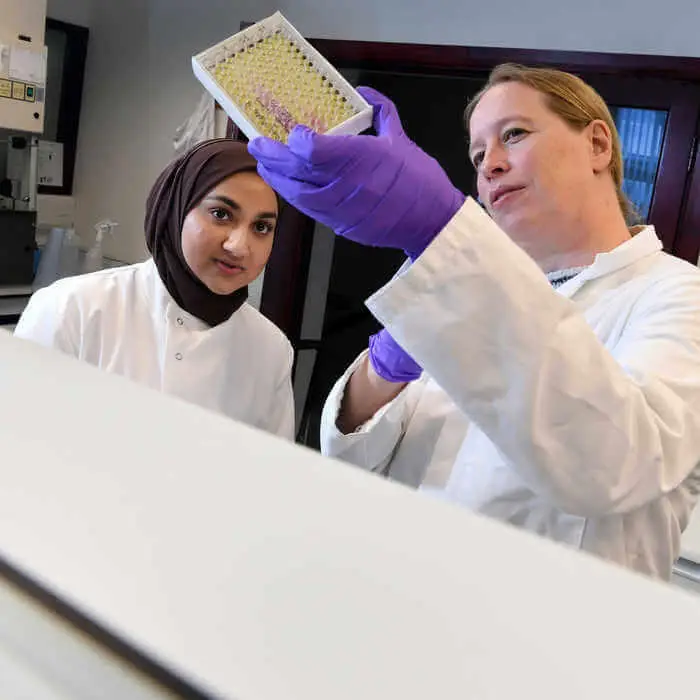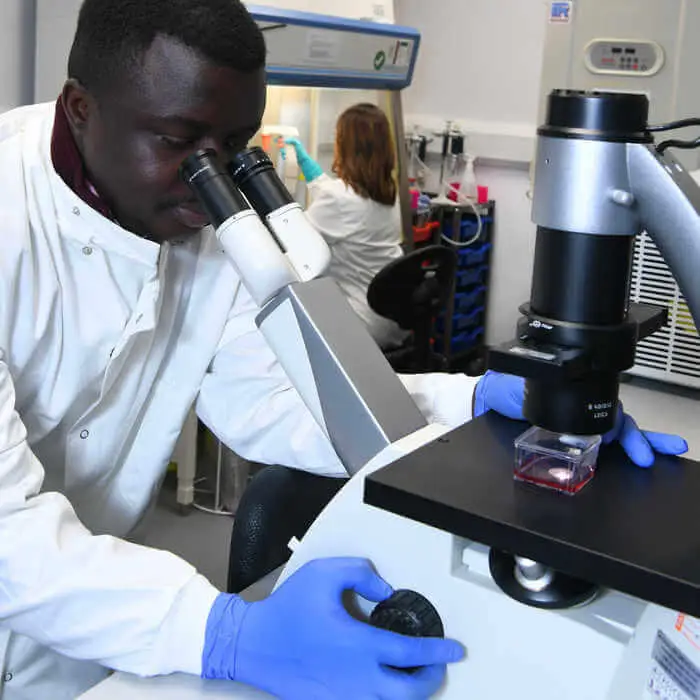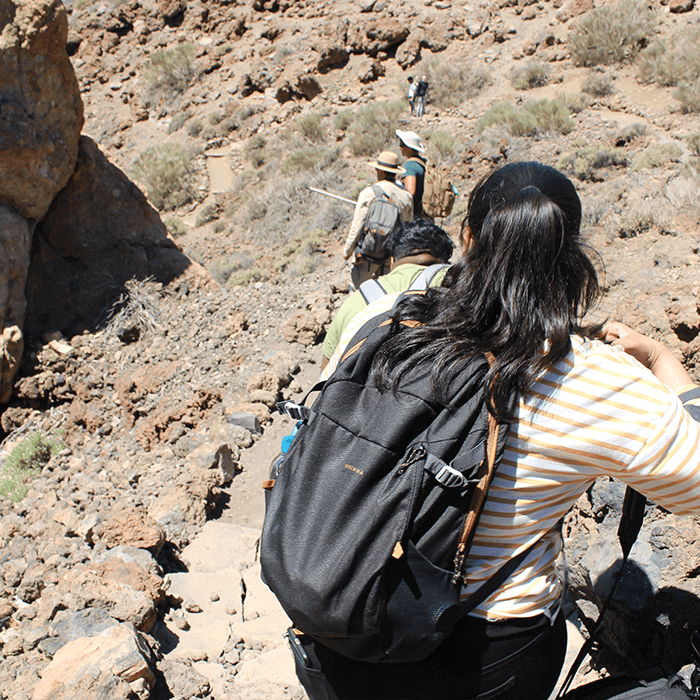Begin your journey towards building a safer planet with an environmental sciences degree
Our courses will equip you with the practical knowledge needed to tackle global environmental issues. You’ll learn a wide range of skills that will make you an all-rounder, capable of dealing with the many challenges our environment faces. You'll become part of a team developing creative and innovative ideas around the areas of plastic pollution, resource utilisation, sustainability and renewables.
Inspirational teaching
You’ll be taught by our industry experts who bring the latest environmental research and insight into their teaching to give you a comprehensive learning experience. Our Environmental Sciences team (closely linked to one of Brunel’s flagship research institutes – the Institute of Health, Medicine and Environments) is a previous winner of the Queen’s Anniversary Prize for two decades of pioneering research.
Industry recognised degrees
Our environmental sciences degrees are highly regarded in the sector. They're accredited by the Institution of Environmental Sciences (IES), meaning they’re valued by employers in the UK and beyond. You’ll benefit from free IES membership as well, which is your first step towards becoming a Chartered Scientist, bringing opportunities for networking and professional development.
Brilliant scientific facilities
Brunel’s campus has a range of scientific learning spaces – inside and outside the classroom or lab – where you’ll get the opportunity to practise your skills. You’ll have access to our extensive, state-of-the-art teaching facilities and research laboratories throughout your studies.
Our Quad North Building houses chemistry laboratories, including an inductively coupled plasma instrument for analysing metals in environmental samples. You can also access chromatography instruments and mass spectrometers for your final year projects. In addition, you'll benefit from use of our Biomedical Sciences facilities for interdisciplinary projects involving environmental science and human health. These resources include a tissue culture laboratory with laminar flow hoods and incubators for various human cell types. Additionally, the microscope laboratory offers 2D and 3D fluorescence microscopy for imaging human cells and chromosomes.
Field-based learning
Fieldwork is an important element of our courses - you’ll attend at least two residential field trips (currently in Dorset and Tenerife). We also organise additional day field trips, and you’ll have the opportunity to get involved in optional research fieldwork. Plus, since the River Pinn runs right through our campus, you'll have the convenience of gathering the samples for your laboratory practical exercises right on your doorstep.
Practical, real-world experience while you study
Get a head start to your career with practical, real-world experience during your studies. Both our courses offer a unique compressed degree, where you can carry out two placements during the summer vacations. This means you can graduate with that all-important work place experience, without the need for adding an extra year to your studies. However, if you'd rather opt for a traditional one-year placement after your second year, you can do that too - the choice is yours.
Strong industry connections to find your placement
When it comes to finding your placement, our award-winning placement team are on hand to provide you with specialist support and guidance. As a result of our strong industry connections, the Environmental Agency offers placement opportunities to students on our Environmental Sciences BSc and Environmental Sciences MSci courses. Our collaboration with the Environmental Agency was shortlisted in 2020 as 'Best Collaboration between a University and Employer' at the National Undergraduate Employability awards.
Setting you up for future success
Our degrees equip you with the skills to pursue careers in areas such as environmental protection, management, compliance, sustainability, and research, with options such as environmental practitioner, analyst, or manager. You’ll develop a strong scientific background which builds your knowledge on environmental management and its effective application globally. In addition to studying scientific topics, you’ll learn to use computer programs such as GIS, you’ll perform data analysis and be trained in areas such as public engagement, communication, leadership and teamwork – all skills that are valued by employers in this sector. Some graduates opt for postgraduate research opportunities within Brunel's vibrant Environmental Sciences program, affiliated with the Natural Environment Research Council’s London Doctoral Training Partnership.

Why Brunel for your environmental sciences degree?

How to apply

Brunel on-demand

Subject taster and reading list